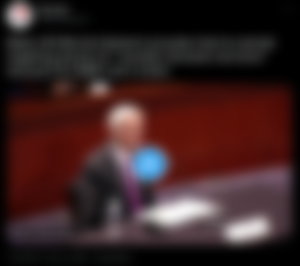The Dangers of Centralization: When Payment Systems Steal Your Money for 'Misinformation'
PayPal is a multinational online payment system that purports to be more convenient over the traditional checks and money orders. If you need to pay rent, you can just send the money to your landlord via PayPal instead of writing a check. If you own a small business, you can make a business account and use PayPal for online checkout.
Trigger-Happy Censorship
While that sounds all nice, there is an ugly catch. The company has been rather arbitrary with who can use its services or not. In particular, PayPal has banned numerous organizations for violating its Acceptable Use Policy, namely for "hate, violence or racial intolerance". The corporation has also banned alternative media for reasons such as criticizing US intelligence agencies. And to add insult to injury, it would hold the patron's funds for "damages".
Journalist Matt Taibbi published a piece on his Substack where PayPal banned Consortium News and MintPress. The former criticized NATO and the Pentagon as well as the false Russiagate narrative. PayPal dinged Alan MacLeod of MintPress for "improper" activity in his account after he published an article on “The NATO to TikTok Pipeline". To add insult to injury, PayPal froze both outlets' funds and threatened to seize them for "damages". Worst of all, PayPal went about it without any transparency. Representatives would have no idea why PayPal handed out the bans. CoinDesk sent multiple inquiries all of which were not answered back.
In a more recent case, PayPal banned the account of the Free Speech Union and founder Toby Young's personal account. The company was not transparent on why it banned the accounts and vaguely stated that the accounts violated its Acceptable Use Policy. PayPal eventually reinstated the accounts after public outcry.
You would think after much criticism, PayPal would do some self-reflection and adjust accordingly. Well...

PayPal Doubles Down
Instead, the company has decided to double-down on its arbitrary behavior. PayPal updated its policy and it's incredibly ominous. Effective on November 3, PayPal will go after accounts that send, post, or publish any messages, content, or materials that “promote misinformation.” That is not all. PayPal will also fine users $2,500 per violation and deliberations will be at the sole discretion of the company.
So let's say you post a few memes. PayPal is able to link your account to those memes and deems them to be offensive because "reasons". All of a sudden, you're on the hook for $5,000 or $7,500. Sounds ridiculous, right? But it's not improbable either.
If you have read my previous pieces in my "Dangers of Centralization Series" and other censorship-critical posts, you should be immediately be suspicious of PayPal's motives. 'Misinformation' nowadays is rarely used unironically.
For instance, Facebook admitted that its so-called 'fact checks' are opinions. In a court filing, Facebook has on record stated that "the [fact-checks] themselves are neither false nor defamatory; to the contrary, they constitute protected opinion" (Page 2). On top of that, some of the 'fact checkers' the social media platform have an incredibly partial track record. The Poynter Institute, for instance, published an articled titled "Is it possible to decolonize the media?".
From 2020 to May 2021, the mainstream media and social media platforms quashed and censored the Wuhan COVID-19 lab leak hypothesis. And then, all of a sudden, the hypothesis was no longer deemed 'misinformation'. Imagine if PayPal's upcoming policy was in effect during that time period. You would be fined thousands of dollars for just suggesting that COVID-19 came from a lab. The mainstream media and social media platforms eventually deemed the hypothesis not politically incorrect, but PayPal keeps your money. Same thing applies to the Hunter Biden's laptop scandal which was falsely accused by mainstream media as 'Russian disinformation'.
And if you think PayPal cannot and/or will not go out of its way to crack down, I would suggest reading my article on the "keyboard warrant". Forbes published an article revealing how the US government has asked Google to provide information of people who searched certain terms on the search engine, including Google accounts and IP addresses. With mainstream social media platforms having a record of being chummy with the US government and people willing to weaponize the federal government against innocent people (see the National School Boards Association's letter targeting parents for 'domestic terrorism'), the probably of PayPal doing the US government's bidding is non-zero.

Closing Thoughts: Protect Your Funds
Sure, PayPal is a private company and it can do whatever it wants. However, the company has a proven track record of lackadaisical enforcement of its policy and lack of transparency. With its updated policy, PayPal has stated that it can take your money away if it arbitrarily determines you have spread 'hate' or 'misinformation'.
This degree of centralization over your funds is why cryptocurrency exists. Rather than having your funds at the mercy of a 3rd party, you have complete ownership (provided you do not put your crypto in a custodial wallet). Get a hot wallet like Guarda, TallyHo! or Atomic and/or a cold wallet like a Ledger or Trezor and keep your private keys safe. Even if someone comes after you for expressing the 'wrong' opinion, your crypto cannot be taken away unlike what PayPal can do to your FIAT.
"The Dangers of Centralization" Archive
The Dangers of Centralized Social Media
Big Tech Being An Extension of the Surveillance State
Facebook Confirms Its 'Fact-Checks' are Opinions


apparently it was all a big mistake, they did not intend to use that language and upset Elon and David